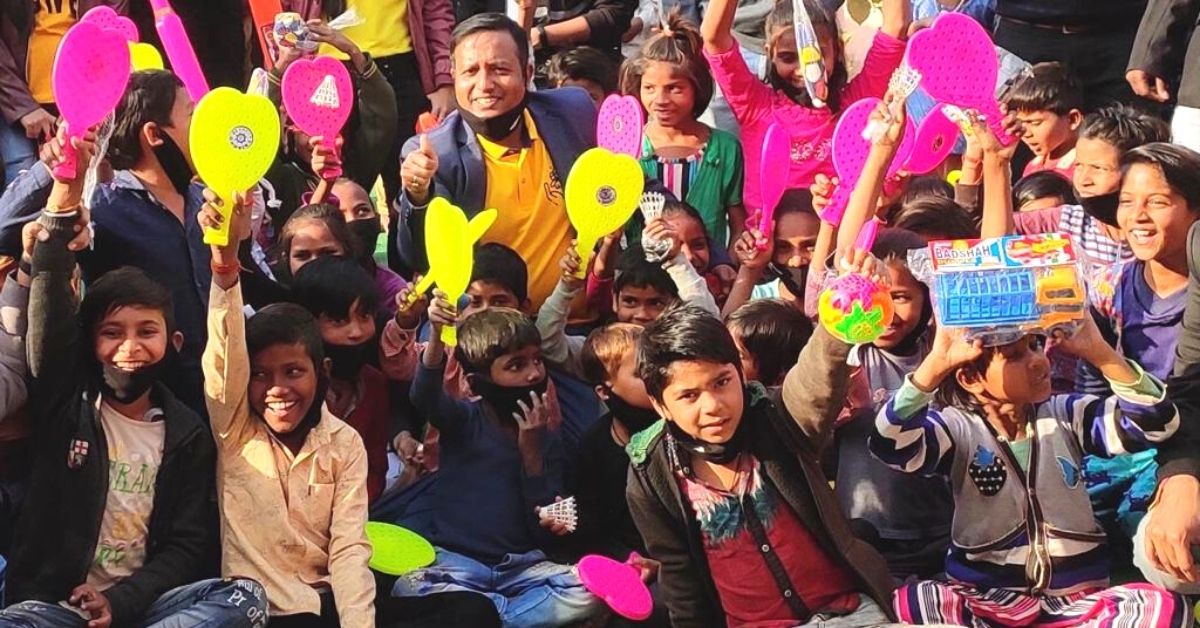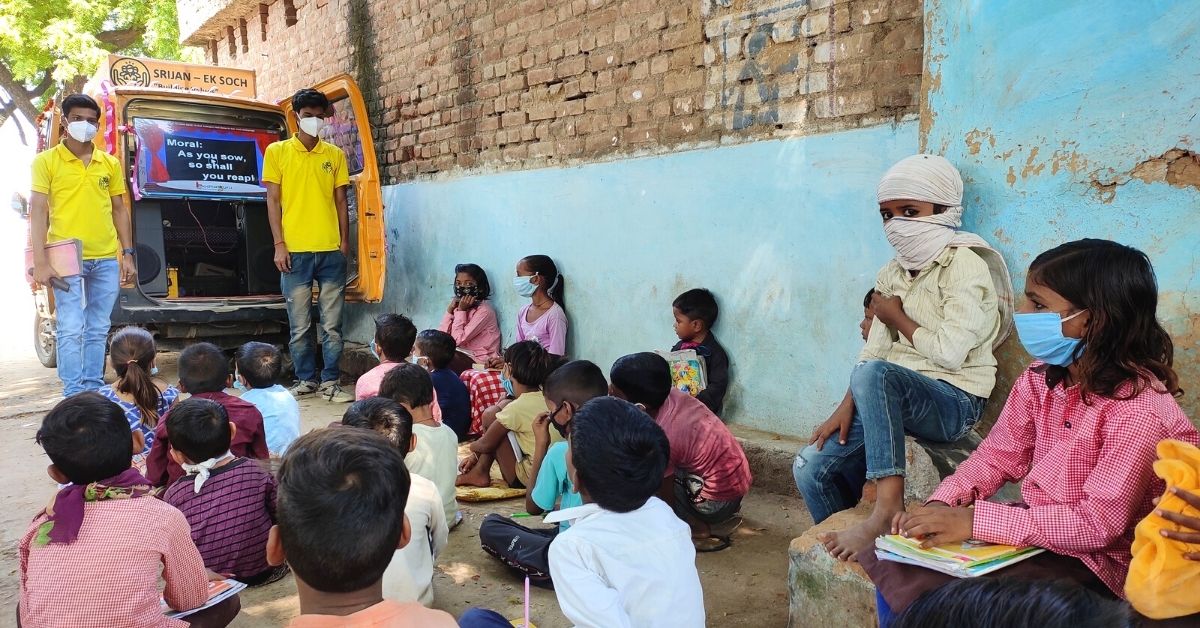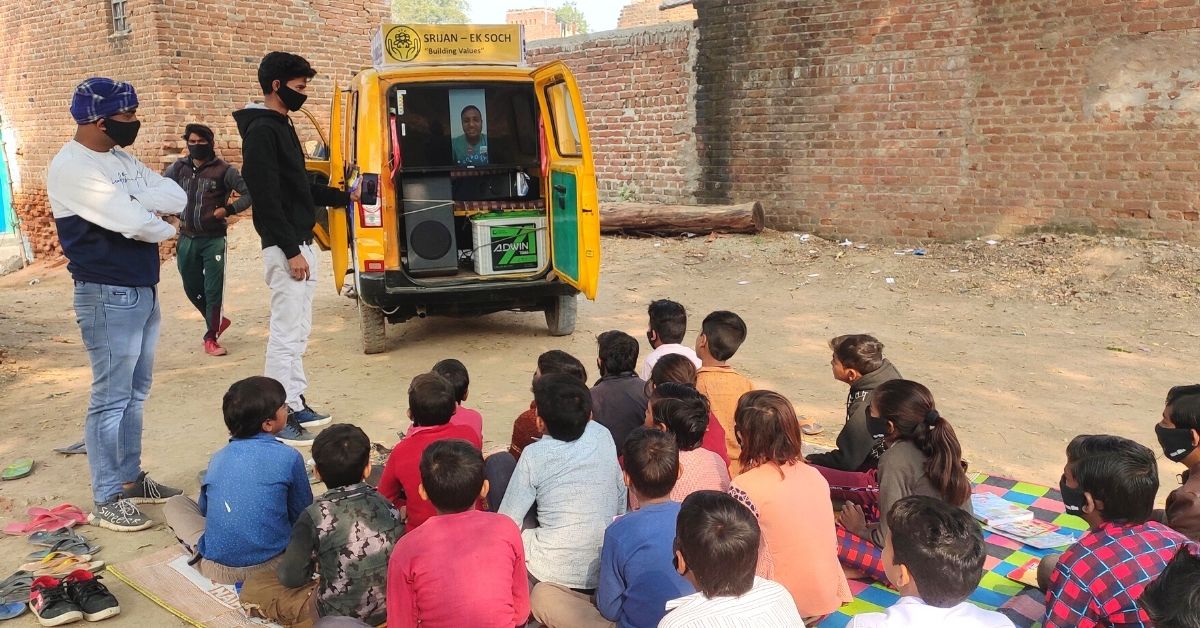Until 2001-2002, Rath, a town located around 150 km from Kanpur in Uttar Pradesh, did not have an English-medium school. Due to lack of development and few opportunities, not many students from this backward region of Bundelkhand could not pursue higher education in established institutions outside town. Those who could found themselves unprepared to compete with students outside the confines of academics.
Similar was the situation of Prabhat Saxena, a native of the area, who scored 81% in his Class XII board examination in 2001. Two years later, he was among a handful of people who cracked one of the country’s most challenging engineering exams, and secured admission in IIT-Dhanbad.
Despite being a topper and earning praises around town for his achievement, Prabhat felt out of place when he started studying petroleum engineering outside his home town. “While I was good in academics like many studying in the institute, I felt I was lagging in terms of extra curricular activities, personality development and other such aspects. My classmates who were from metro cities and other urban areas were ahead in these terms. I had studied in a Hindi medium school and always struggled with English. I faced more challenges and hurdles compared to classmates from urban areas,” he tells The Better India.
To ensure that no student from a rural area has to experience this inferiority complex, Prabhat started an NGO in 2015 to help over 3,000 underprivileged students from six districts of Uttar Pradesh. The students receive quality education and career guidance. Since its launch, around five students have cracked IIT, 17 have cleared JEE Mains, seven have made it to the state civil services and 38 have cleared the National Talent Search Examination (NTSE).
Holistic education

“It was rare for students to go out of town to pursue higher education. I realised that many students like me would face the same issue due to lack of exposure, career guidance and aspects that help groom one’s overall personality,” the 35-year-old says.
Hence, from 2004, Prabhat started reaching out to teachers in his hometown, offering support and suggestions to enhance education. During his visits home, he conducted career guidance seminars and provided necessary help to underprivileged students. He continued this through his academic years. Prabhat graduated in 2007 and took up jobs that have led him to work in Norway, Kuwait, Mumbai and Abu Dhabi over the years. He is currently working in Qatar.
While building his career alongside, he set up a library in his hometown, conducted health awareness camps, and organised talent hunt examinations while guiding underprivileged students.
“In 2015, I felt the need to scale up my work and decided to launch an NGO, Srijan Ek Soch. The aim was to go beyond guiding students in their career, and ensuring quality education in their early years,” he says.
Prabhat decided to set up smart classes for students between Classes I and XII in private schools to enable easy learning and provide quality education at par with their urban counterparts. “We requested three schools to dedicate a classroom to install projection screens, internet connections, computers and create other digital infrastructure for students. Some volunteers helped train teachers in explaining concepts in a better manner. Emphasis was given to improve the English of both teachers and students and enhance the students’ personalities,” he adds.

Prabhat succeeded in helping hundreds of students in the town. By 2019, he was guiding them in cracking IIT and other competitive examinations.
The same year, Prabhat launched a project, Srijan Ek Sankalp, to replicate the education model in rural areas of Uttar Pradesh. In July, he adopted Kaithi, a village in UP, and roped in seven full-time volunteers to ensure consistent efforts go into sustainable education for lesser privileged students. In October, the NGO partnered with IIT Roorkee to facilitate the Central government’s Unnat Bharat Abhiyan project by adopting Horawala village in Uttarakhand. Education is provided to students here free of cost, and no monetary contracts are signed with the schools.
Since then, the NGO has established smart classes in over 15 villages, reaching out to over 3,000 students. Prabhat says a major challenge he faces in this work is changing the mindset of people. “Locals feel that the initiative might not offer long term solutions or support. Students are less confident in trying out new mediums of learning. School managements are also unwelcoming at times,” he says.
Prabhat says the initial years required a lot of patience and efforts in convincing stakeholders and building trust. “We could not impose our views directly, and had to find sublime ways to improve teaching models in the schools. It is hard to make people believe in your ideas. But once the students started seeing changes, the task became easier,” he adds.
Chain reactions

Rajendra Gupta, a teacher with Din Dayal Upadhyay Rajkiya Model Inter College, says, “The institute set up a smart class in 2019. The upgraded infrastructure has helped explain concepts of mathematics and physics through the visual medium. Students can grasp topics easily and it helps reduce teaching time,” he says.
Rajendra adds that these classes add to the teachers’ knowledge and helps them impart education with confidence. “The students are interested in learning in a fun way, which motivates the teachers too. Attendance has also been steady,” he adds.
Over the years, Prabhat’s ex-colleagues and peers Nikhil Shrivastava, Ravindra Gupta, Anurag Bharti, Vijay Gupta, Punit Dubey, Shubham Sankhdhar and KK Jha have also joined the cause. “We fund 70% of the expenses from our salaries, and the remaining funds come from corporates and partners through their CSR initiatives,” he adds.
The COVID-19 pandemic was a setback for the cause. “The schools closed due to the lockdown. Hence, we started ‘Shiksha Ki Gaadi — Education on Wheels’ to ensure education was accessible. Three minibuses travelled to rural areas reaching out to 1,000 students and ensuring that students do not miss out on studies,” Prabhat says.
Ram Prasad, a parent from the Lalitpur district, says there has been significant progress in his daughter’s academic performance. “Earlier, due to an inadequate educational system, my daughter did not possess much knowledge about various concepts and happenings around the world. However, ever since the Shiksha Ki Gaadi started visiting our village, she has been able to keep up with her studies,” he says.

Prabhat says the initiative has evolved into an ecosystem and improved the education system of his town. “Ravindra and Vijay used to be my students. They realised the importance of this initiative and how it benefits them. Hence, they decided to return to their hometown and dedicate all their time to educate underprivileged students,” he adds.
Srijan has recently launched isaksham.com, a web portal for students from Classes I to XII, allowing them access to all the study material related to their classes and subjects, free of cost.
“A chain reaction has started, wherein students are gaining the benefit, and the teachers want to find creative ways of teaching. The students have access to all the educational assistance that one might get in schools in big cities. We aim to reach 10,000 students in 40 villages across India by 2021. I do not wish any rural student to feel the inferiority complex I did while studying in metro cities,” he adds.
Edited by Divya Sethu
No comments:
Post a Comment